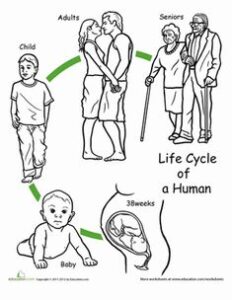Understand Human Life Cycle
 The human life cycle is a fascinating journey that encompasses various stages of development, from conception to death. Each stage is characterized by unique physical, emotional, and social changes that shape individuals and their experiences. The life cycle is generally divided into several key phases: infancy, childhood, adolescence, adulthood, and old age. During infancy, rapid growth and development occur, laying the foundation for future learning and social interaction. Childhood is a time of exploration and discovery, where individuals learn vital skills, develop relationships, and begin to form their identities.
The human life cycle is a fascinating journey that encompasses various stages of development, from conception to death. Each stage is characterized by unique physical, emotional, and social changes that shape individuals and their experiences. The life cycle is generally divided into several key phases: infancy, childhood, adolescence, adulthood, and old age. During infancy, rapid growth and development occur, laying the foundation for future learning and social interaction. Childhood is a time of exploration and discovery, where individuals learn vital skills, develop relationships, and begin to form their identities.
Adolescence marks a transitional phase, characterized by the onset of puberty and a quest for independence. This stage often involves significant emotional changes and social pressures, as individuals navigate their identities and establish connections with peers. Adulthood follows, encompassing various roles such as career, parenthood, and community involvement. This phase often brings challenges and responsibilities, requiring individuals to balance personal aspirations with societal expectations. Finally, old age represents a time of reflection and adaptation to physical and social changes. Understanding the human life cycle highlights the interconnectedness of experiences across different stages, emphasizing the continuous evolution of individuals throughout their lives.